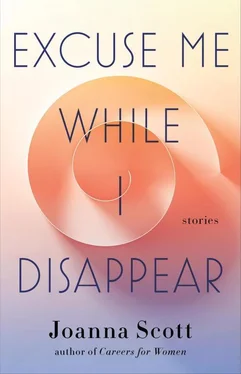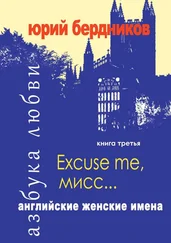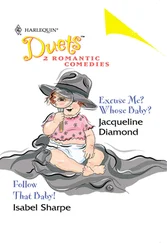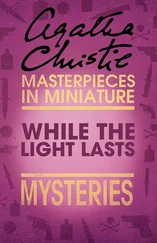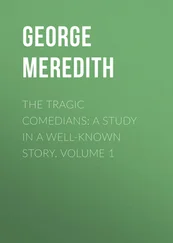“I need you to set up the loudspeakers. And tell Sylvio to gather the Academy Band. We’re going to have a parade, and we need music. Most of all, we need drummers. You know what they say about drummers, Ugo?”
“What’s that, sir?”
“When drummers drum, the law is silent.”
Meanwhile, Luca is at his desk, writing. He writes with a No. 2 pencil on lined paper. He is almost at the end of his novel and has filled a fat binder with more than eight hundred pages. Handwriting is essential in his process, for it gives him a sense of timelessness. Revision will begin when he transfers the text to his computer.
He is too deeply engrossed to worry about the merit of the work or to wonder what readers will make of it. He doesn’t need to imagine the fate of the completed book. He prefers to concentrate on bringing it to life and giving it form in the shape of words that emerge so rapidly from the tip of his pencil that he can hardly keep up with them.
The novel tells the story of a Sudanese girl who at the age of eighteen sets out with hundreds of other desperate people on the perilous journey across the sea in an inflatable boat. The boat capsizes, and scores of passengers drown. The girl survives by clinging to a Styrofoam cooler. After two days in the sea, she is saved by the coast guard. She is delivered to a village much like the village where Luca and Mario live. She finds a job working as a maid in a hotel much like the hotel where the American and her friends are staying. She learns the language of the country from watching television. Halfway through the novel, she meets a boy from the village, and they fall deeply in love. Unbeknownst to them, the owner of the hotel has been plotting to sell the girl into slavery. Two thugs arrive in her bedroom in the middle of the night with the aim of kidnapping her. They find her in bed with the boy from the village, and in the scuffle they fatally stab the boy. By the time the police arrive, the thugs have fled the scene, and the girl is covered with blood. She is charged with the murder of the boy and after a trial that extends for several chapters of the book, she is found guilty and sentenced to death.
Luca is in the process of writing the last chapter, when the girl is alone in her prison cell on the final night of her life. He has given this portion of the book over to the girl’s thoughts, immersing himself in their heaving, jarring movement. He feels the force of her mind affecting him physically, as if he were experiencing an accident in slow motion. With each word, he is spun and bumped, turned upside down, dragged backward, blown into the air. He can barely endure imagining the very tragedy that he has conceived. The poor, poor girl. Another writer would concoct a reprieve for her in the final pages. Not Luca. He desperately wants to save her, but he can’t, or won’t, because her destiny has been determined by factors laid out earlier in the book and now are impossible to change. The point is that the innocent girl must die. The community will subject her to its twisted justice, despite the author’s reluctance to allow it.
He is reminded of poignant lines he recently read in a biography of the poet Rilke. The quote came from a young woman Rilke knew: “I know I shall not live very long,” the woman wrote in her diary, “but I wonder, is that sad? Is a celebration more beautiful because it lasts longer?”
Luca has written his novel in celebration of a girl who is destroyed by a community’s ignorance. No matter that the girl in his book doesn’t exist. She is real enough to Luca to blur his eyes as he faces with her, through her, the reality of impending death. She will die. He will die. With every breath he takes, he depletes his allotment of life, until, one day, there will be nothing left. He expects that in the end he will be reduced to kicking and sobbing and calling for mercy, for he lacks the courage shown by the girl in his novel. Though she won’t be spared, she will triumph by the sheer force of her independent will. She will not allow herself to descend to the depravity of those who have condemned her. She will refuse their invitation for false repentance. She will draw her fingertip along the wall as she flies from her cell into the secure refuge of her mind, marveling at the riches that are her memories and the purposefulness of her existence. To the last second of her conscious life, she will prove with the fierce intensity of her intelligence that she is free.
Round about noon, the village reverberates yet again with that familiar low rumbling that comes from having a major rail line run through the town. Down at the cove, where the American woman and her friends are sunbathing, the noise is barely audible over the gentle churning of pebbles being dragged forward and back by the waves. She lazily attributes the sound to one of those long freight trains bringing lumber down from the mountains.
In fact, there is no train this time. The crossing gates remain raised, and the traffic has come to a standstill to let a military convoy pass. Little paper flags magically appear in the hands of children, who wave merrily at the jeeps, then at the trucks packed with soldiers, and then at the trailers heaped with spanking new missiles and cannons.
Though the Americans don’t know this yet, it is not unusual for a convoy to roll through the streets on its way south. The government likes to extend its show of strength beyond the cities, and this village happens to be on a route between two strategic ports. The residents feel a mix of annoyance and patriotic pride at the inconvenience. The young people in doorways look on with interest. Some of the old men even make the stiff-armed salute that until recently was considered taboo because of its association with a defeated regime and a disgraced dictator.
On one side of the village, Mario waits on the top step outside the prefecture. Clouds float in mirror images across the disks of his sunglasses. His deputy slouches nearby, resting his elbow on the butt of his machine gun. They hear the pop of a backfire. By the time the single truck full of soldiers peels away from the line and pulls in front of the building, the deputy is standing straight and tall.
On the other side of the village, Luca has paused in his work and is remembering the story his father told about how he was forced to wait along the roadside for the dictator’s convoy to go past. His father, a young boy at the time, was supposed to salute; he wanted to refuse but to do so would have endangered not just him but his whole family. The boy had a clever solution: he raised his arm, but instead of keeping his hand open, he curled his fingers into his hair. For the rest of his life, Luca’s father could say that instead of saluting the dictator, he only scratched his head.
The American woman and her friends are disappointed when they arrive at the little pizzeria on the terrace above the beach and find it closed. They are reduced to a lunch of tuna sandwiches on soggy, crustless white bread at a nearby café. The woman shares her friends’ frustration at having to wait out the siesta to go shopping. She agrees that the country’s struggling economy would improve if only the stores would stay open all day.
The sea breeze has weakened, the air is stifling, washed-up piles of jellyfish are rotting on the beach, the sun is scorching. There is nothing to do. Whose idea was it to come to this wretched village anyway? The group would have started squabbling just to pass the time if they hadn’t heard the sound of brass instruments in the distance, followed by the merry beating of drums. Is it a wedding? A fair? Whatever is going on, it’s sure to be entertaining.
They hurry off in the direction of the sound, winding uphill through the narrow streets until they come to the main square, where they are delighted to find a large, festive assembly. The band is playing, and the church doors are wide open. Uniformed men and women standing shoulder to shoulder are crisply outfitted and as stone-faced as store mannequins. Some of the older men in the crowd wear quaint tricorne hats decorated with a single feather. Small dogs run underfoot, chased by squealing children. When a bouquet of balloons is released into the sky, the woman and her friends all reach for their cell phones, keen to make a visual record of the experience.
Читать дальше
